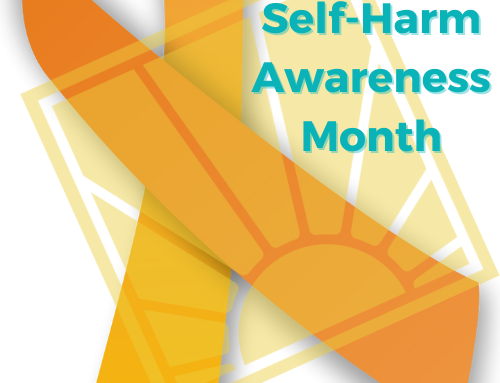Despite what teens may report, acts of self-mutilation are not representative of typical or harmless adolescent behavior. Self-harming behavior is symptomatic of serious underlying emotional or mental health issues that should be addressed with the support of a comprehensive therapeutic milieu that has the expertise to effectively address self-harming.
For a person who has had no experience with intentional self-harm, it is a confusing and frightening phenomenon. Most of us avoid pain and seek pleasure, but the cutter seems to avoid pain by seeking pain. Self-harming behaviors are often a method for avoiding unwanted and unpleasant emotions. It is often an attempt to drown out emotional pain by engaging in more manageable physical pain. Many teens report relaxation and emotional numbness after self-harming. It is easy for staff in a residential treatment setting to become so distracted by the cutting itself that efforts go toward controlling the behavior instead of addressing the problems underneath.
The self-harmer’s environment is highly influential in reinforcing or extinguishing self-harming behaviors. Sunrise provides a comprehensive therapeutic approach that addresses the act of self harm and the underlying issues fueling the self-harming behavior and ideation. Young women who experience difficulties with emotional regulation and self harm participate twice a week in Dialectical Behavior Therapy (DBT) Skills Training Group facilitated by a licensed psychologist. Our DBT groups are conducted in a format that facilitates the generalization of emotional regulation skills into the participant’s environment. Milieu staff members are trained in the principles of DBT to help coach the young women in the moment and provide a culture that supports the use of DBT skills in their daily living. Sunrise takes an active approach to investigating the variables in the young women’s environment that are possibly reinforcing her acting-out behavior; armed with this information we are better equipped to develop behavioral strategies that extinguish self-harm.
Our students are taught acceptance-based strategies to more effectively manage their overwhelming emotions. Sunrise views unpleasant emotions as a normal part of the human experience; the rejection or denial of pain is what leads to real suffering. Twice a week Yoga sessions create an opportunity for students to practice emotional and physical frustration tolerance. The meditation skills taught in our DBT Skills Training Group and Yoga classes help teach them to be in control of their thinking rather than controlled by their thinking. Mindfulness skills teach them to effectively manage thoughts of self-harm and increase their awareness of their emotions. Sunrise’s therapeutic milieu also utilizes DBT “diary cards” to monitor self-harming behaviors and ideation. The cards are a therapeutic staple in each girl’s treatment at Sunrise. Students utilize diary cards in their DBT Skills Training Groups, daily community groups, and individual therapy sessions. In daily community groups, peers and milieu staff provide ongoing feedback to each student regarding their progress toward DBT target behaviors; DBT target behaviors are also an integral portion of the milieu’s twice daily medical charting of each student. Our young women not only learn DBT distress tolerance and emotional regulation skills, but are also challenged to gain insight into the etiology of their self-harming urges. Sunrise balances change and validation-based strategies to promote a culture that helps young women effectively manage unpleasant emotions.

